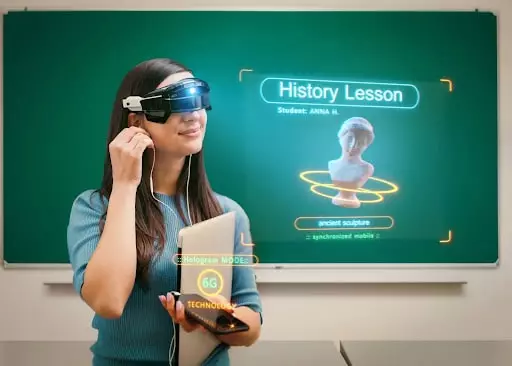In a world where accessibility and inclusivity are paramount, the importance of education cannot be understated. However, the traditional education system has long been plagued by geographical and institutional barriers, stifling the potential of learners and teachers alike. Enter the decentralized education movement, or DeEd, which harnesses the power of decentralized technologies to revolutionize the learning process.
The Covid-19 pandemic exposed the flaws in the education industry, as schools were forced to close and students were left grappling with remote learning. According to the World Bank, these closures could result in a staggering $21 trillion in lost salaries among the current generation of students. The pandemic also shed light on the issues at the executive level, where financial and political factors have hindered decision-making processes.
It is evident that the education system, which has remained largely unchanged since the 1800s, needs a transformation. DeEd offers a solution by breaking down physical and geographical barriers, ensuring that anyone with an internet connection can access the education they need.
One of the key advantages of DeEd is its ability to personalize and customize the learning experience for each individual. Gone are the days of overcrowded classrooms and a one-size-fits-all approach. Learners now have the freedom to choose subjects, modules, and techniques that align with their unique needs and interests.
Moreover, DeEd takes full advantage of modern technologies, enabling the development of interactive and gamified learning experiences. Learners can engage in peer-to-peer learning, where education is seamlessly integrated into play. Executives from multiple industries recognize the effectiveness of this approach, as it caters to different learning styles and preferences.
The changing landscape of learning is driven by various technological, social, and economic factors. Blockchain technology and artificial intelligence have paved the way for the creation and delivery of learning programs with unparalleled transparency and security. Distributed ledger technology ensures that educational materials are easily accessible and verifiable.
The dynamics of the job market have also fueled the demand for bespoke learning. With rapid technological advancements leading to career changes becoming the norm, individuals require flexible and up-to-date education. Social media and interactive internet platforms have facilitated the integration of current communication methods into the learning process, further propelling the shift towards DeEd.
Several projects are spearheading the decentralized education movement, each addressing different aspects of the industry. TinyTap, for instance, is an edtech project that offers a vast library of educational games in multiple languages. Recently, it ventured into the Web3 space, introducing Publisher NFTs that enable educators to earn passive income from their courses.
Hooked Protocol takes a social learning approach, combining gamification and monetary rewards. By completing quizzes on interactive dApps like Wild Cash, users receive cryptocurrency tokens as incentives. This innovative platform motivates learners while making education a rewarding experience.
Open Campus tackles the issue of scarcity of teachers by digitizing educational materials and enabling teachers to monetize their efforts. Through tokenization, educators can publish their learning materials on platforms like TinyTap. Moreover, Open Campus embraces community-governance, ensuring that users have a say in the decision-making process.
While the potential of DeEd is groundbreaking, challenges remain. Addressing the digital divide is crucial to ensure equal access to education for all. Quality and consistency of education must also be maintained in the digital realm. Additionally, onboarding users to unfamiliar technological platforms requires comprehensive training and support.
Despite these challenges, the decentralized education movement has the power to transform the educational landscape. By embracing the principles of accessibility, equity, and inclusivity, DeEd paves the way for a fruitful future of education. Institutions and individuals must recognize its potential and actively contribute to shaping a new era of learning.
The decentralized education movement is reshaping the way we approach education. By leveraging decentralized technologies, DeEd breaks down barriers, empowers learners, and enables teachers to reach a global audience. As we embrace this transformative movement, the future of education holds promise for a more accessible, equitable, and inclusive society.


Leave a Reply